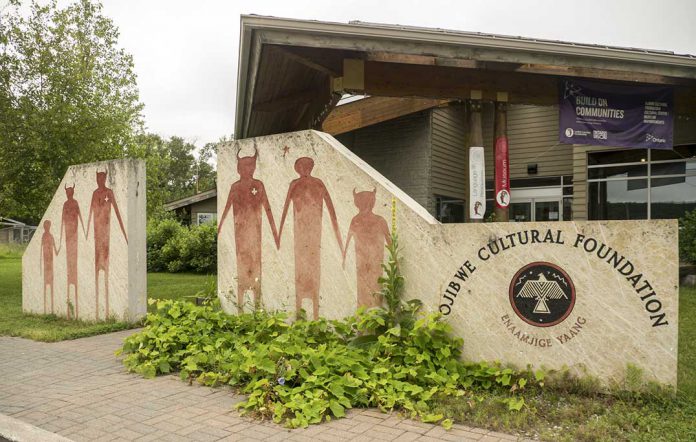AUNDECK OMNI KANING—Noojmowin Teg is bringing a community-based sexual assault services clinic to Manitoulin Island, saving Island residents from having to travel to Sudbury for the same care.
“We’re anticipating that the clinic will be more responsive because it’s more accessible and local,” says Noojmowin Teg executive director Pam Williamson.
Presently, if somebody becomes a victim of sexual assault, they have to travel to Sudbury to receive forensic testing using a rape kit. That testing is used to generate admissible evidence that could suffice within a court, something Ms. Williamson says is often out of reach for victims. A sexual assault victim from Meldrum Bay, for instance, would have to travel approximately three hours to get to the Sudbury hospital.
“We know a number of victims won’t go for the testing because of trauma, because of distance and the lack of local supports,” says Ms. Williamson. “We wanted to have the clinic here so it would provide accessible, more immediate services for individuals already experiencing trauma.”
She adds that the clinic is designed to offer a holistic solution that provides support long after the initial incident.
“If an individual would need a follow-up appointment, they could come to us or we’d make sure their info and referrals would go to their primary care provider,” she says.
The clinic has already received funding from the Ontario Ministry of the Attorney General to have forensic testing as part of Noojmowin Teg’s suite of services. “(We have the) possibility of being one of the first community-based forensic testing clinics in Ontario.”
The clinic is nearly ready to operate, but Ms. Williamson says the provincial government has asked her organization to defer the program’s onset. The funding from the Attorney General is scheduled to expire on March 31, 2019.
The Ministry of the Attorney General has requested that Noojmowin Teg defer its funding and reapply with the Ministry of Health and Long-Term Care (MOHLTC). Since MOHLTC is responsible for all medical services in the province, the funding will need to come through them instead of the Attorney General. Ms. Williamson says she is still waiting to see whether or not MOHLTC will approve the new funding request.
“In the meantime, we’re hoping to get formal letters of support from First Nations governance and are hoping this will be seen as a pilot. If it’s successful, they may roll it out in other areas,” says Ms. Williamson.
She adds that the challenge of accessing sexual assault support is not unique to Manitoulin.
“It’s a Northern Ontario issue. If a woman is in a fly-in community, she has to be flown out of her community and can’t easily go to a local hospital, she has to go to a regional hospital like Sault Ste. Marie, Sudbury or Thunder Bay,” she says. “Victims have to go extensive distances in order to get such testing. That means they’re more likely not to get the testing to support their legal cases.”
Ms. Williamson says Noojmowin Teg is looking to hire two full-time nurses to work strictly in this clinic as well as some casual nursing staff. She hopes to train them this fall so the clinic will be fully operational in the new year — the hope being that new funding will be in place before the old model expires at the end of March.
“We’ve hired the supporting services of a navigator, counsellor and a cultural support worker specifically to support sexual assault and violence victims,” she says.
Ms. Williamson adds the clinic speaks to recommendations stemming from the Truth and Reconciliation Commission (TRC), Missing and Murdered Indigenous Women and Girls (MMIWG) and the Patients First legislation that promotes tailoring patient treatment to their heritage.
“We’re an Indigenous primary care organization and we feel that having culturally relevant services will make it a more viable service to victims,” she says.





